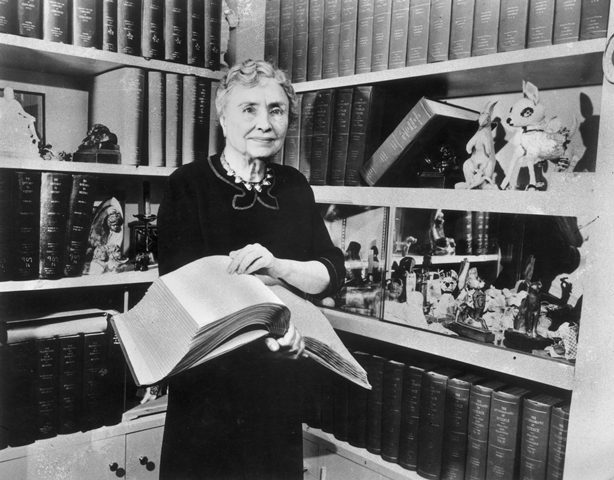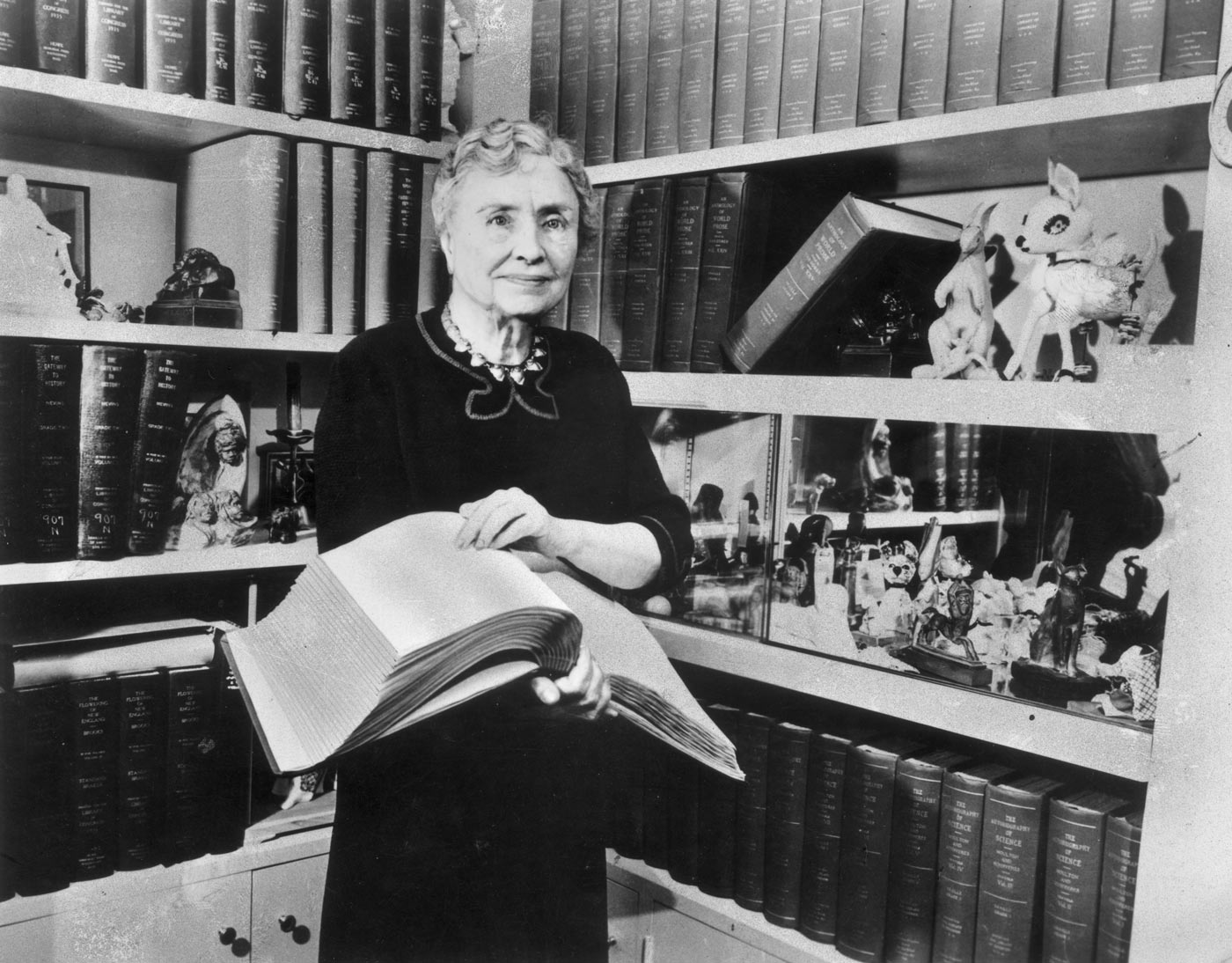
My Time with Helen Keller
When I was a young child my parents lived in Fairfield, Connecticut, in a house that was about three or four miles from Arcan Ridge, Helen Keller’s house.
As a very young man, about six or seven at the time, I remember my first encounter with Helen. It was my first experience with a person who was blind.
As a blind person does, she felt my face and then worked around to the side of my head and felt my ears, which were then prominent and still are. She said, “Ah, you have the Adams ears!” because her family on her mother’s side was named Adams. This later became a joke between my father, myself and Helen because we had absolutely nothing to do with the Adams family of her origin.
Then she felt my garments. It was the fall and I had these corduroy trousers on and I was absolutely blown away by the fact that she said, clear as day, “Corduroy.” She then added something to the effect that, “It whistles when you walk.” I was amazed, and I still am amazed, by that.
What I remember best about Helen during those times was that she was not a small talk person. Helen liked to talk about international affairs. She was amazingly well read for a person that was unsighted and without hearing. She had recourse to weekly news magazines in Braille. Polly [Thompson, her aide at the time] would read to her from the daily papers for breaking news, and of course, Helen had this amazing correspondence with everybody.
Anyway, Helen liked to talk about foreign affairs, about philosophy and religion, and was amazingly well suited for that level of conversation. At the table Polly was most faithful in transmitting what was being said back and forth. Anyone who watched the two of them together knew that after twenty or thirty years of this close communication they had bonded almost physically, and the result was an ability to communicate not by the manual alphabet but by gestures, pounding one another on the side of the head and otherwise emphasizing what they were talking about. It was quite remarkable.
In foreign policy she was a great admirer of the very traditional world order, UN kind of things, and she never pulled punches about that. Today we’re careful about what we say. She did not care. She was against war and famine. She had in her way seen more distress than most people because she spent a huge amount of time in Third World and post-war nation situations.
As everyone knows she was deeply attuned to the feelings of children. She went right around, over, under and through the politicians to the children. She had this feeling about them that they were the future and that’s true. At the same time, she was careful to cultivate world leaders because through world leaders she would help achieve a policy that she wanted for the blind.
She was very much concerned about international affairs, always, always. She became more of a spokesperson for the disadvantaged – disadvantaged in every way. People without food, people without eyesight, people without money – it didn’t matter. She became drawn more and more into the idea that people who make war are crazy.




